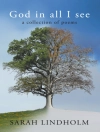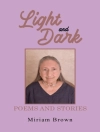Collected for the first time, four landmark works of queer experimental poetry by reclusive cult poet David Melnick, known for his prowess with invented language and sound poetry.
David Melnick’s Nice: Collected Poems spans twenty crucial years of gay life and experimentation with poetic form, bringing together four masterworks of American literature: Eclogs (1967-70), ten episodes in the urban afterlife of pastoral; PCOET (1972), written in an unknown tongue, verse for a world that’s yet to be; Men in Aida (1983-85), Melnick’s masterpiece, a giddy epic of queer community; and A Pin’s Fee (1988), a backward glance and elegy, a cry of pain, howl of anger.
Sobre o autor
David Melnick
was born in Illinois in 1938 and raised in Los Angeles, educated at the University of Chicago (where he studied with Hannah Arendt) and the University of California at Berkeley. Although he spent time in France, Greece, and Spain (whence his mother’s ancestors emigrated in 1492), most of his adult life was centered in San Francisco. For an author’s note he once wrote, “This poet’s politics are left, his sexual orientation gay, his family Jewish…. He is short, fat, and resembles Modeste Moussorgsky in face and Gertrude Stein in body type and posture.” A participant in the Free Speech movement, Melnick was a key member of G.A.W.K. (Gay Artists and Writers Kollective) and an early inspiration to the Language Poets. His masterpiece, Men in Aida, began in a reading group organized by Robert Duncan. Melnick passed away in 2022, a day before his 84th birthday.
Benjamin Friedlander is a poet teaching at the University of Maine and editor of Robert Creeley’s Selected Poems 1945-2005.
Alison Fraser is Associate Curator of the Poetry Collection at the University at Buffalo and editor of The Collages of Helen Adam.
Jeffrey Jullich is a poet and lives in New York City.
Ron Silliman is the author or editor of twenty-six books, among them The Alphabet (a long poem), the memoir Under Albany, and the watershed anthology In the American Tree (which includes the work of David Melnick).












